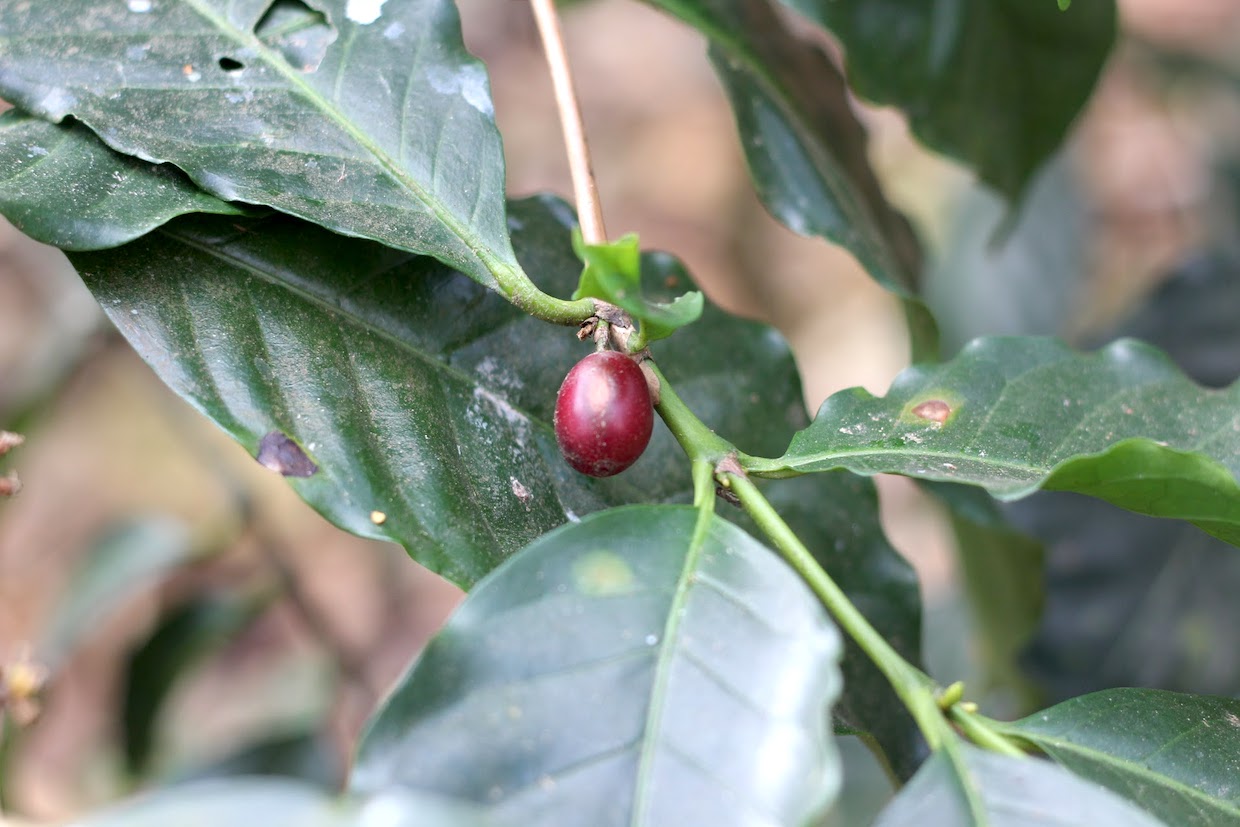A new study has concluded that environmental shifts associated with climate change and climate adaptation can indeed affect the quality of coffee.
The findings have implications for consumers who prefer higher-quality coffees, farmers and producers who rely on both volume and quality for income, and every other actor in the seed-to-cup nexus.
The team of researchers behind the study screened some 1,600 peer-reviews scientific papers published within this century, identifying 73 for a comprehensive review around the question:
What are the effects of environmental factors related to climate change and management conditions linked to climate adaptation on coffee quality on the basis of secondary metabolites and sensory attributes?
In layperson’s terms, this might read: How is climate change affecting coffee quality?
The researchers discovered two clear trends: 1) coffee flavor and aroma is improved when coffee is grown at higher altitudes; and 2) increased light exposure is associated with decreased sensory attributes.
The researchers also found that coffee quality is affected by changes in the amount of water the plant receives, temperature, carbon dioxide levels and nutrient management in the soil — all of which are potentially affected by climate change and adaptation.
“A better understanding of the relationship between climate and coffee quality is overdue and will be essential for the specialty coffee industry to adapt to the challenges we are facing and to thrive in the future,” Peter Giuliano, executive director of the Coffee Science Foundation, a nonprofit research arm of the Specialty Coffee Association (SCA), said in a joint announcement of the study’s publication last month.
Authors of the paper hailed from Montana State University, Tufts University, Texas A&M University, the Coffee Science Foundation and SCA, and Bozeman, Montana-based roasting company Treeline Coffee Roasters.
While a fair amount of past research has been dedicated to the effects climate change and adaptation might have on coffee production, much of that research has focused on the suitability of coffee-growing lands and crop yields/volumes.
Researchers have warned that higher-quality but more sensitive arabica species of coffee plants tends to be at higher risk to climate changes than the more climate resilient but lower-quality robusta species.
Related Reading
- What Is Specialty Coffee? SCA Offers a Fresh Definition
- Most Wild Coffee Species, Including Arabica, Are Now in Danger of Extinction
- Researchers Find Significant Contamination in ‘100% Arabica’ Products, Warn of Fraud
In this paper, researchers contend, based on their review, that both arabica and robusta coffees are prone to quality shifts based on changing climate conditions.
“For years, coffee farmers have told buyers that the climate is changing and complicating their work,” wrote SCA Chief Sustainability and Knowledge Development Officer Kim Elena Ionescu, “but the impacts of those changes on coffee flavor have been based on anecdotal evidence and, sometimes, on speculation.”
Montana State University associate professor Selena Ahmed, one of the paper’s lead authors, suggested that the biochemical composition of coffee can have far-reaching implications at both ends of the coffee value chain.
“Shifts in the biochemical composition of coffee loop back into the food system as it impacts the way consumers experience the flavor of coffee and their decisions about purchasing coffee,” Ahmed said. “In turn, consumer decision-making impacts farmers’ livelihoods, as well as how they manage their farms, with tremendous implications for sustainability.”
The paper, “Climate Change and Coffee Quality: Systematic Review on the Effects of Environmental and Management Variation on Secondary Metabolites and Sensory Attributes of Coffea arabica and Coffea canephora” was published in the journal “Frontiers in Plant Science.”
[Editor’s note: This story has been updated. A previous version failed to include Texas A&M University an affiliated institution to this study.]
Nick Brown
Nick Brown is the editor of Daily Coffee News by Roast Magazine.
Comment
3 Comments
Comments are closed.








There needs to be an open discussion on the topic of climate change and the affect on specialty coffee and the industry as a whole. Isn’t the end goal to make a one world coffee with one quality? Isn’t this how we can all be paid our fair share in the supply chain? It’s the fair trade model. To have a organization enforce a certification and mark up with standard social expectations to the growers, traders, and roasters with minimum quality standards. Specialty coffee currently aligns with the capitalistic model of those producing higher quality green coffees receive greater incentives than those who don’t. Is this fair?
Your one world quality means lower quality overall, with no need to push for excellence. No reason or desire to improve. Life is not fair , never has been, never will be. We should all try to make the best of what we have, including our coffee. As a crop, I’m baffled at how one can think that we can somehow achieve sameness. Weather, water, shade, harvest time & technique all play a roll. I may not be able to drink the best, but why should I want those that can produce the best to decide not to just because it won’t be the same? Because it might be better than what someone else can produce? Intentionally being mediocre doesn’t make things more fair, it just makes what could be great things not good.
As far as the article though, it sounds like climate change has the ability to improve coffee quality by allowing it to be grown at a higher elevation!
I believe this article is citing the possibilities of sensory impact not the realized impact. To study what could impact coffee aroma and taste is very different from stating there IS an impact.